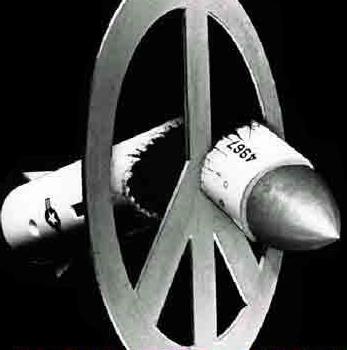Nuclear Non-Proliferation and Disarmament: Shifting the Mindset

To download a full copy of this briefing booklet, click here.
Executive Summary
Throughout the Nuclear Age, leaders of the United States, Russia, United Kingdom, France and China – the five permanent members of the United Nations Security Council, known as the P5 – have been locked in old ways of thinking about security. They believe that nuclear deterrence in a two-tier structure of nuclear haves and have-nots can hold indefinitely without significant nuclear proliferation and further use of nuclear weapons. This way of thinking continues to place not only the P5 and their allies in danger of nuclear annihilation, but threatens global catastrophe for civilization, the human species and most forms of life.
The policies of the nuclear weapon states have favored going slow on achieving a world free of nuclear weapons, preferring arms control and non-proliferation measures to nuclear disarmament. They have placed emphasis on small steps rather than taking a comprehensive approach to the elimination of nuclear weapons. While reducing their nuclear arsenals, they have simultaneously modernized them, and thus have demonstrated their continued reliance upon these weapons in their security policies.
However, cracks in this old and dangerous way of thinking have begun to show in the statements of former high-level policy makers in the United States and other countries and in the vision of a nuclear weapon-free world expressed by U.S. President Barack Obama.
This briefing booklet explores new ways of thinking in relation to the 2010 Non-Proliferation Treaty (NPT) Review Conference. It presents the case that nuclear weapons abolition is the only rational and sane position to adopt toward current nuclear threats. In light of the overwhelming threat posed by nuclear weapons, all conference participants are urged to bear in mind the following in preparing for their deliberations:
• Nuclear weapons continue to present a real and present danger to humanity and other life on Earth.
• Basing the security of one’s country on the threat to kill tens of millions of innocent people, perhaps billions, and risking the destruction of civilization, has no moral justification and deserves the strongest condemnation.
• It will not be possible to prevent proliferation of nuclear weapons without fulfilling existing legal obligations for total nuclear disarmament.
• Preventing nuclear proliferation and achieving nuclear disarmament will both be made far more difficult, if not impossible, by expanding nuclear energy facilities throughout the world.
• Putting the world on track for eliminating the existential threat posed by nuclear weapons will require a shift in thinking about this overarching danger to present and future generations.
The briefing sets forth a spectrum of perspectives on nuclear weapons, from Nuclear Believers at one end to Nuclear Abolitionists at the other. Between them are three other groups, the largest being the Nuclear Disempowered. This group is composed of most of the general public who are often ignorant, confused and apathetic about nuclear weapons as a result of government secrecy and manipulation of information about the role of these weapons in security policies and the consequences of persisting plans for their use. It is this critical group that must be made more aware of the nuclear threats to our common future and must make their voices heard in a new and vigorous global dialogue on nuclear policy.
The booklet reviews a number of proposals to achieve a world free of nuclear weapons and sets forth five priorities for agreement at the 2010 NPT Review Conference:
1. Each signatory nuclear weapon state should provide an accurate public accounting of its nuclear arsenal, conduct a public environmental and human assessment of its potential use, and devise and make public a roadmap for going to zero nuclear weapons.
2. All signatory nuclear weapon states should reduce the role of nuclear weapons in their security policies by taking all nuclear forces off high-alert status, pledging No First Use of nuclear weapons against other nuclear weapon states and No Use against non-nuclear weapon states.
3. All enriched uranium and reprocessed plutonium – military and civilian – and their production facilities (including all uranium enrichment and plutonium separation technology) should be placed under strict and effective international safeguards.
4. All signatory states should review Article IV of the NPT, promoting the “inalienable right” to nuclear energy for peaceful purposes, in light of the nuclear proliferation problems posed by nuclear electricity generation.
5. All signatory states should comply with Article VI of the NPT, reinforced and clarified by the 1996 World Court Advisory Opinion, by commencing negotiations in good faith on a Nuclear Weapons Convention for the phased, verifiable, irreversible and transparent elimination of nuclear weapons, and complete these negotiations by the year 2015.
The briefing then considers issues of double standards and concludes that such standards will result in predictable catastrophes. A more just and secure future for humanity will require leaders of all countries, and especially those in the nuclear weapon states, to exercise sound judgment and act for the benefit of all humanity. A thorough rethinking of nuclear policy is needed, with the goal of moving from minimal acceptable change to a comprehensive plan for achieving a nuclear weapon-free future.
A full copy of the briefing booklet can be downloaded from at http://www.wagingpeace.org/goto/nptbooklet. To request a hard copy, please call (805) 965-3443.
David Krieger is President of the Nuclear Age Peace Foundation and a Councilor on the World Future Council.

